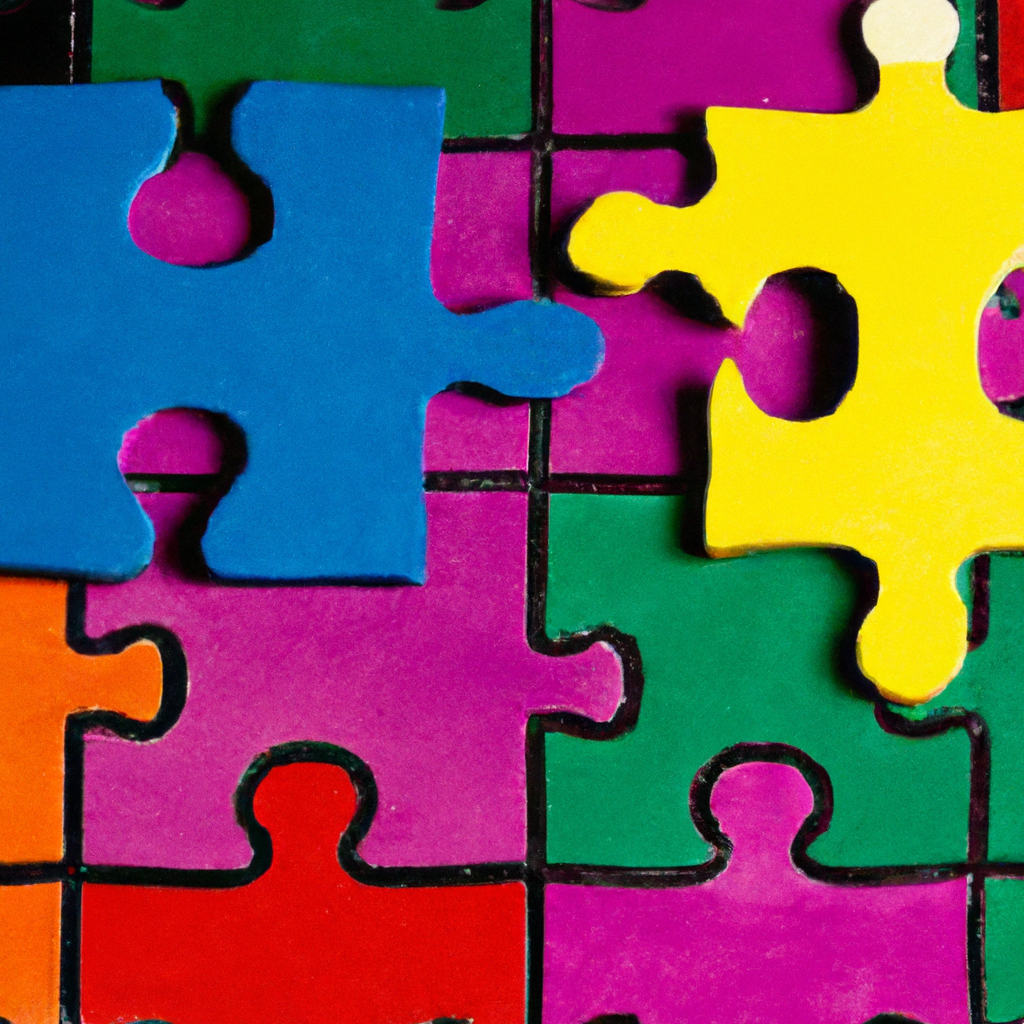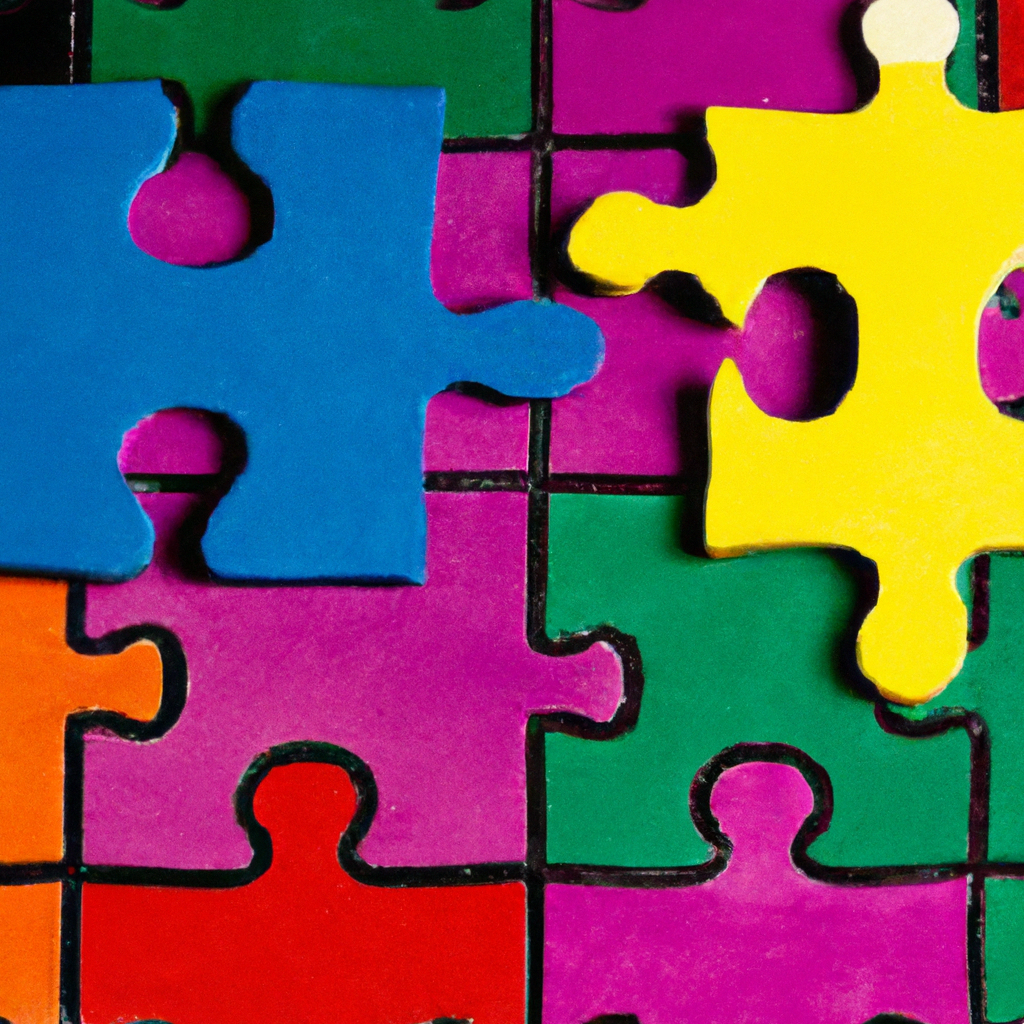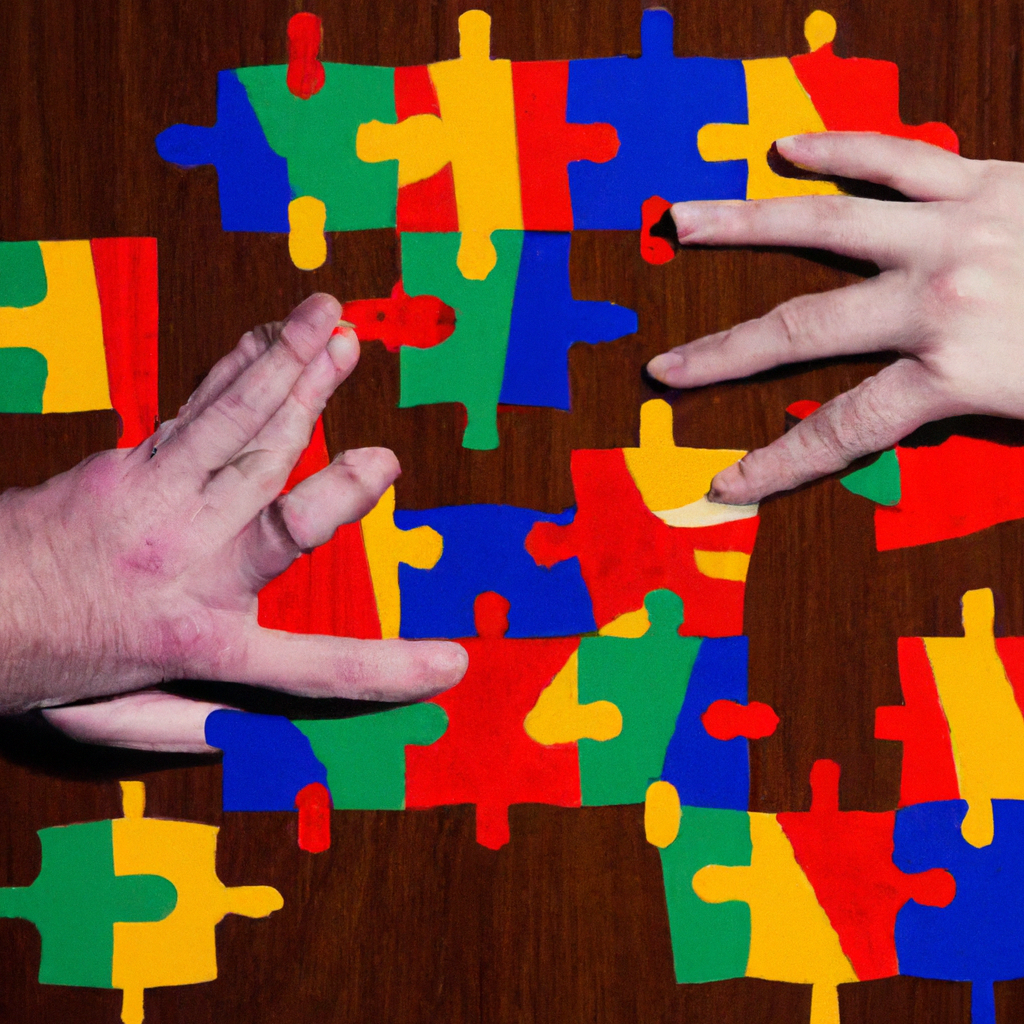
In navigating the complexities of marriage and relationships, finding a supportive and understanding marriage counselor or therapist can make all the difference. But for LGBTQ+ couples, it can feel like an added challenge to locate someone who not only possesses the necessary expertise, but also understands the unique experiences and struggles that come with being part of the LGBTQ+ community. When it comes to fostering mental and emotional well-being, it is crucial to find a provider who is not only LGBTQ+-friendly, but also knowledgeable about the specific needs and concerns of the LGBTQ+ community. This article aims to guide you on how to find an LGBTQ+-friendly marriage counselor or therapist who will provide the support and understanding you deserve.
Understanding the Importance of LGBTQ+-Friendly Marriage Counselors and Therapists
In today’s society, it is crucial to recognize and understand the unique challenges faced by LGBTQ+ individuals in relationships. Discrimination, prejudice, and social pressures can have a significant impact on the mental and emotional well-being of LGBTQ+ couples and individuals. That’s why finding a LGBTQ+-friendly marriage counselor or therapist who understands these challenges and offers effective support is essential.
Recognizing the unique challenges faced by LGBTQ+ individuals in relationships
LGBTQ+ individuals may face a range of challenges in their relationships that differ from those experienced by heterosexual couples. Homophobia, biphobia, and transphobia can create additional stressors and impacts on mental health. The struggle for acceptance from family, friends, and society as a whole, coupled with the fear of discrimination, can take a toll on LGBTQ+ individuals.
Moreover, relationship dynamics within LGBTQ+ couples can also be unique. Each individual may have their own experiences and identities, requiring a therapist who understands the complexities of these dynamics. For example, in same-sex relationships, gender roles and expectations may be fluid, and traditional relationship models may not fully apply.
Exploring the significance of seeking LGBTQ+-friendly therapists for effective support
Seeking therapy from LGBTQ+-friendly marriage counselors and therapists can provide a safe and supportive environment for individuals and couples to address their concerns. These professionals have specialized knowledge and understanding of the unique challenges faced by LGBTQ+ individuals. They can offer guidance and insight into building healthy relationships, managing conflicts, and navigating societal pressures.
Having a therapist who is LGBTQ+-friendly can impact the therapeutic relationship positively. The therapist’s understanding of the experiences, identities, and nuances of LGBTQ+ individuals can foster a sense of trust, validation, and empathy. LGBTQ+-friendly therapists can offer a safe space to explore personal struggles, address relationship issues, and promote personal growth and development.
Searching Online Directories and Databases
When looking for LGBTQ+-friendly marriage counselors or therapists, utilizing online directories and databases can be a helpful starting point. These resources compile information about therapists who affirm and support LGBTQ+ individuals.
Utilizing LGBTQ+ affirming therapist directories
LGBTQ+ affirming therapist directories are specifically designed to connect individuals with therapists who have experience and expertise in working with LGBTQ+ clients. These directories provide comprehensive listings of LGBTQ+-friendly therapists, making the search process more efficient and focused. They often include details about the therapist’s specialization, credentials, and areas of expertise.
By using directories that prioritize LGBTQ+ affirmation, individuals can feel more confident in finding a therapist who understands their unique needs and experiences.
Exploring LGBTQ+ or queer-centered therapy platforms
Another avenue to explore is LGBTQ+ or queer-centered therapy platforms. These platforms cater specifically to the LGBTQ+ community and provide a space where individuals can connect with therapists who specialize in LGBTQ+ issues.
LGBTQ+ or queer-centered therapy platforms may offer additional features such as forums, support groups, or educational resources catering to LGBTQ+ mental health. These platforms can be beneficial as they provide a community-centered approach and allow individuals to connect with others who share similar experiences.

Seeking Recommendations from the LGBTQ+ Community
When searching for a LGBTQ+-friendly marriage counselor or therapist, seeking recommendations from trusted LGBTQ+ individuals can be invaluable. Personal referrals not only provide insights into the therapist’s competency but also provide a sense of comfort and assurance knowing that others have had positive experiences.
Asking for referrals from trusted LGBTQ+ individuals
Speak with trusted LGBTQ+ friends, acquaintances, or members of LGBTQ+ support groups to inquire about their experiences with therapists. They may be able to recommend professionals who understand the unique challenges faced by the LGBTQ+ community and can provide excellent support.
Asking for referrals from trusted sources within the LGBTQ+ community ensures a higher likelihood of finding a therapist who is knowledgeable, compassionate, and affirming.
Joining LGBTQ+ support groups or online communities
Being part of LGBTQ+ support groups or online communities can offer a wealth of information and resources when searching for LGBTQ+-friendly therapists. These spaces often provide a supportive network where individuals can share their experiences and offer recommendations.
By joining LGBTQ+ support groups or online communities, individuals can tap into a pool of collective wisdom and experiences, helping navigate the process of finding a LGBTQ+-friendly marriage counselor or therapist.
Evaluating Professional Credentials and Expertise
When considering potential marriage counselors or therapists, it is essential to evaluate their professional credentials and expertise.
Checking for certifications or trainings in LGBTQ+ affirmative therapy
Therapists who have received certifications or specific training in LGBTQ+ affirmative therapy demonstrate a commitment to understanding and addressing the unique needs of LGBTQ+ individuals. Certifications such as the AAMFT LGBTQ+ Affirmative Therapist Certificate Program provide evidence that the therapist has undergone specialized training in LGBTQ+ affirmative therapy.
Verifying such certifications or trainings can provide reassurance that the therapist is equipped with the knowledge and skills necessary to provide effective support to LGBTQ+ clients.
Researching therapists with experience in LGBTQ+ relationship counseling
Experience is an essential factor when selecting a marriage counselor or therapist. Researching therapists who have a track record of working with LGBTQ+ individuals or couples can ensure that one receives care from a professional who understands the complexities of LGBTQ+ relationships.
Therapists who specialize in LGBTQ+ relationship counseling bring a depth of understanding and expertise that can enhance the therapeutic experience. Their familiarity with the intricacies of same-sex relationships and non-heteronormative dynamics can contribute to more meaningful and effective sessions.

Considering Accessibility and Affordability
Accessibility and affordability are significant considerations when seeking a LGBTQ+-friendly marriage counselor or therapist.
Exploring options covered by insurance or sliding scale fees
Cost can be a barrier to mental healthcare for many individuals. However, it is important to explore options that may be covered by insurance or offer sliding scale fees based on income. Some therapists may also offer reduced rates or pro bono services as a way to support the LGBTQ+ community.
Researching and contacting therapists to inquire about their pricing options allows individuals to find LGBTQ+-friendly therapists that align with their financial capabilities.
Finding therapists who offer remote sessions for flexibility
In today’s digital age, remote therapy sessions have become a popular and accessible option. Finding therapists who offer remote sessions can be particularly beneficial for LGBTQ+ individuals who may not have access to LGBTQ+-friendly therapists in their local area.
Remote sessions provide flexibility and convenience, allowing individuals to seek therapy from the comfort of their own homes while still benefiting from the expertise of LGBTQ+-friendly professionals.
Conducting Initial Phone Interviews
Before committing to a particular therapist, conducting initial phone interviews can be a helpful way to assess whether they are a good fit for your needs.
Discussing the therapist’s approach to LGBTQ+ issues
During the phone interview, it is essential to discuss the therapist’s approach to LGBTQ+ issues and their experience working with LGBTQ+ clients. Inquire about their understanding of LGBTQ+ identities, challenges faced by the community, and their commitment to providing LGBTQ+-affirming therapy.
A therapist who demonstrates knowledge, empathy, and a genuine commitment to supporting LGBTQ+ clients can provide the safe space required for effective therapy.
Asking about experience in working with couples or individuals in same-sex relationships
If seeking therapy as a couple or an individual in a same-sex relationship, it is important to ask the therapist about their experience in working with similar dynamics. Inquire about their understanding of the unique challenges faced by LGBTQ+ couples or individuals, and how they incorporate this understanding into their therapeutic approach.
By asking these questions, individuals can gauge whether the therapist has the necessary experience and expertise to provide the specific support they need.
Assessing Personal Compatibility
Finding a LGBTQ+-friendly marriage counselor or therapist involves considering personal compatibility and individual comfort.
Determining if the therapist aligns with one’s values and beliefs
Therapy is most effective when individuals feel comfortable and share a basic alignment of values and beliefs with their therapist. When searching for a LGBTQ+-friendly therapist, it is essential to assess whether their outlook matches one’s own. This alignment contributes to a greater sense of understanding and facilitates a strong therapeutic alliance.
Assessing personal compatibility with the therapist can be done through discussions during initial sessions or by thoroughly reviewing their online profiles and bios.
Considering the importance of feeling comfortable and heard
Therapy is a deeply personal and vulnerable process, which is why it is crucial to find a therapist with whom one feels comfortable and heard. Trust and rapport are essential components of successful therapy. LGBTQ+ individuals should prioritize finding a therapist who creates a safe and non-judgmental space where they can be fully themselves.
Feeling comfortable and heard allows individuals to openly share their experiences, emotions, and concerns, leading to more meaningful and effective therapy sessions.
Inquiring About Therapeutic Techniques and Approaches
When selecting a LGBTQ+-friendly marriage counselor or therapist, it is beneficial to inquire about their therapeutic techniques and approaches.
Finding therapists who use evidence-based LGBTQ+ affirmative practices
Evidence-based therapeutic practices refer to interventions that have proven effectiveness in addressing specific concerns. When searching for a LGBTQ+-friendly therapist, consider therapists who utilize evidence-based LGBTQ+ affirmative practices.
These practices demonstrate the therapist’s familiarity with established methods that have been shown to be effective in supporting LGBTQ+ clients. Examples of evidence-based approaches may include cognitive-behavioral therapy (CBT), dialectical behavior therapy (DBT), or acceptance and commitment therapy (ACT) tailored to LGBTQ+ individuals.
Discussing the utilization of intersectional approaches
Intersectionality recognizes that a person’s experiences and identity are shaped by the intersections of their various social identities, such as race, gender, and sexuality. Inquiring about a therapist’s approach to intersectionality can ensure that they will address the multifaceted aspects of an individual’s identity.
An intersectional approach acknowledges and validates the various identities of LGBTQ+ individuals, recognizing that their experiences are influenced by more than just their sexual orientation or gender identity.
Prioritizing Open Communication and Trust
Open communication and trust are fundamental to any successful therapeutic relationship, including with LGBTQ+-friendly marriage counselors or therapists.
Establishing a safe and non-judgmental therapeutic environment
Therapists who create a safe and non-judgmental environment allow LGBTQ+ individuals to share their experiences openly. When speaking with potential therapists, consider their communication style and their ability to foster a safe therapeutic environment.
An LGBTQ+-friendly therapist should actively listen, provide empathy, and create a space free from bias or discrimination. This ensures that individuals can explore their concerns without fear of judgment or negative outcomes.
Ensuring a therapist respects confidentiality and autonomy
Confidentiality and autonomy are highly valued in therapeutic relationships. LGBTQ+ individuals must ensure that the therapist respects their privacy and confidentiality. During initial sessions, discuss the therapist’s approach to confidentiality, ensuring that they adhere to ethical standards and legal obligations.
Additionally, verify that the therapist supports and upholds individual autonomy, recognizing that LGBTQ+ individuals have the right to make decisions about their lives and relationships without interference or judgment.
Considering Personal Preferences and Comfort
When seeking a LGBTQ+-friendly marriage counselor or therapist, it is essential to consider personal preferences and comfort.
Seeking therapists who identify as LGBTQ+ if desired
Some individuals may feel more comfortable working with a therapist who identifies as LGBTQ+. For those seeking a sense of shared experience and a deeper understanding of LGBTQ+ issues, finding a therapist who identifies as LGBTQ+ may be a priority.
If the therapist’s identity aligns with one’s personal preferences, it can enhance the therapeutic relationship and foster a stronger connection.
Exploring therapists who specialize in specific LGBTQ+ issues
In addition to LGBTQ+ affirmation, some therapists specialize in specific LGBTQ+ issues. These may include topics such as coming out, transgender transitioning, non-monogamy, or intersectional identities.
When individuals have specific concerns or desire expertise in a particular area, seeking therapists who specialize in those LGBTQ+ issues is crucial. Specialized knowledge and experience allow therapists to provide more targeted support for the unique challenges faced by LGBTQ+ individuals.
By following these steps and taking the time to find a LGBTQ+-friendly marriage counselor or therapist, individuals can ensure they receive the support they need. Remember, seeking help is a courageous and important step towards building healthier relationships and promoting mental and emotional well-being within the LGBTQ+ community.




